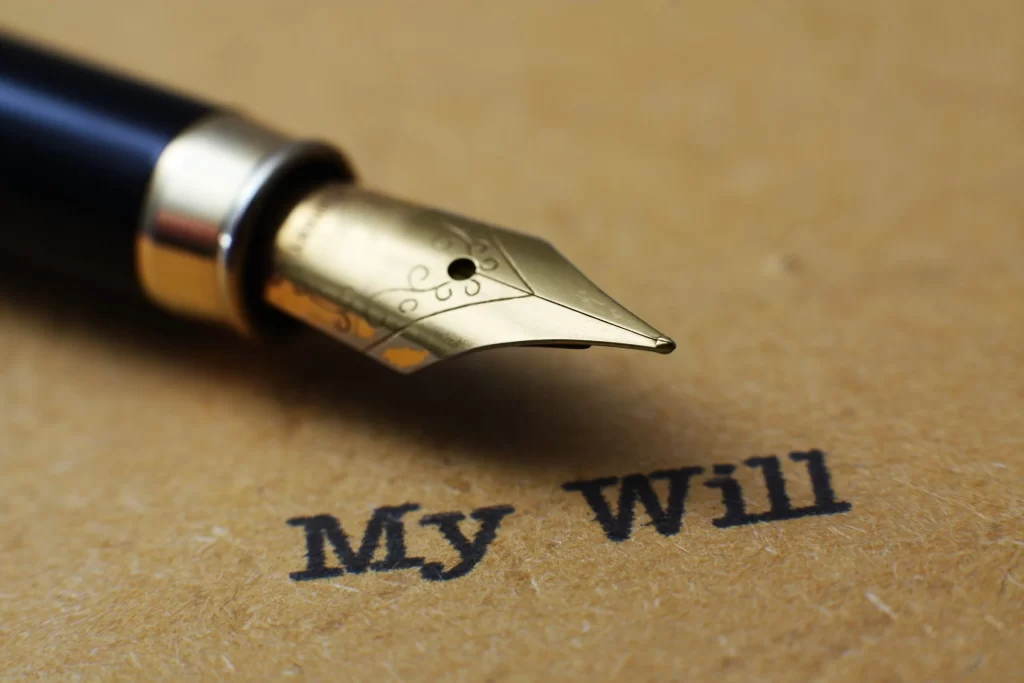Estate planning isn’t exactly the life of the party. Wills, trusts, power of attorney – they all sound intimidating, and the legalese doesn’t exactly help. But hey, you’ve worked hard to build your life, and ensuring your wishes are carried out after you’re gone is an important act of love for your loved ones. One question that pops up frequently is: does a last will and testament have to be notarized?
The short answer? Not always! But hold on, there’s more to the story. Buckle up, and we’ll navigate the world of wills and notarization together.

Witnessing Your Wishes: The Key to Validity
In most states, a valid will hinges on having it witnessed. Think of witnesses as your personal security team for your will. They’re there to confirm you willingly signed the document and are of sound mind. The exact number of witnesses required varies by state, but typically it’s two.
Notarization: The Added Layer of Security (Optional in Most Cases)
Now, let’s talk about notarization. A notary public is an official who verifies the identity of someone signing a document and ensures the signing is done voluntarily. While it’s not mandatory for most wills, notarization can add an extra layer of protection.
Here’s why some people choose to get their wills notarized:
- Reduced Risk of Challenges: A notarized will can be harder to contest in court. If someone challenges the validity of your will, the notary’s verification can help establish its legitimacy.
- Smoother Probate Process: Probate is the legal process of distributing your assets after you pass away. A notarized will can sometimes expedite the probate process, saving your loved ones time and stress.
- Peace of Mind: Knowing your will has that extra layer of security can bring peace of mind.
- Cross-Jurisdictional Recognition: Notarization can be particularly useful if your Will needs to be recognized in different jurisdictions, as it can enhance its acceptance and validity across borders.
Want to know about: “Are Last Will and Testament Public Record?” Just visit our blog page today!
So, When Should You Consider Getting Your Will Notarized?
Here are some situations where notarization for your last will and testament might be a good idea:
- Your state allows for self-proving wills: These wills incorporate an affidavit signed by the testator (the person making the will) and witnesses in front of a notary. This affidavit can streamline the probate process.
- Your estate is complex: If you have a significant amount of assets or complicated family dynamics, notarization might be a wise move.
- You have concerns about someone contesting your will: If you anticipate any challenges to your will, notarization can add weight to its validity.
Even if you choose not to get your will notarized, always have it witnessed according to your state’s laws.
State Variations: Notarization Rules Across the US
Will requirements vary from state to state. Here’s a quick breakdown of the two extremes:
- Most States: Don’t require notarization for a valid will, as long as it’s properly witnessed.
- North Dakota and Colorado: Allow optional notarization in place of witnesses.
Alternatives to Notarization
If notarization is not required or feasible, there are alternatives to ensure the validity and authenticity of your will:
- Witness Signatures: Ensure your will is signed in the presence of witnesses who meet legal requirements. Witnesses should be impartial and not beneficiaries.
- Self-Proving Affidavit: Some jurisdictions allow for a self-proving affidavit to be attached to the will. This affidavit, signed by the testator and witnesses, attests to the validity of the will without the need for further proof in court.
- Legal Advice: Consult with a legal professional specializing in estate planning to ensure your will complies with all legal requirements and addresses your specific needs.
The Takeaway: Do Your Research!
The best course of action? Consult with an estate planning attorney familiar with your state’s laws. They can advise you on whether notarization is necessary or beneficial for your specific situation.
If you’re looking for an estate planning attorney to help you with these matters, just don’t hesitate to contact Wills Time today!
Keep Your Will Safe and Sound!
Once your will is finalized, store it securely in a location accessible to your executor (the person responsible for carrying out your wishes). Let your executor know where it is and keep copies with a trusted friend or family member (who isn’t a beneficiary in the will to avoid conflicts).
Final Thoughts
Planning for the future isn’t always sunshine and rainbows, but a little preparation can make a big difference for your loved ones. By understanding the role of witnesses and notarization in wills, you can ensure your wishes are respected, and your legacy lives on. Remember, estate planning isn’t a one-time event. Review your will periodically to ensure it reflects your current wishes and life circumstances.
Now, go forth and conquer your estate planning goals! And hey, if you ever need a friendly reminder about the importance of a will, just think of this blog post (and maybe nudge your loved ones to do the same!). Confused about whether your will needs a notary? Ditch the guesswork! Wills Time lawyers can guide you through the legalese and ensure your wishes are crystal clear. Get a free consultation and breathe easy, knowing your legacy is protected. Wills Time – because planning for the future shouldn’t be a mystery.
